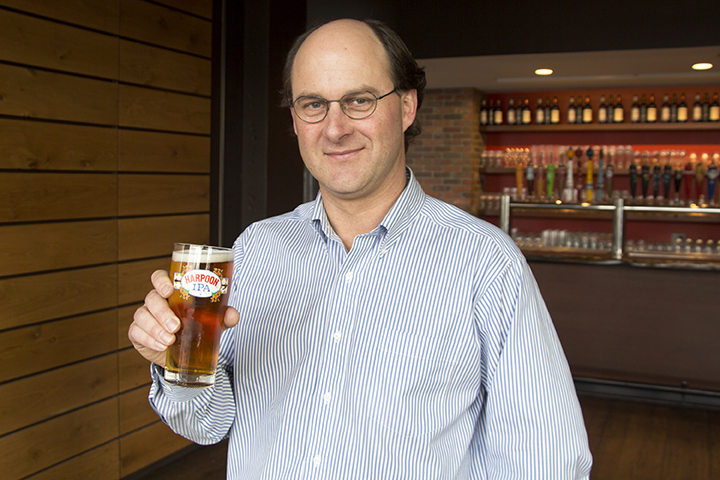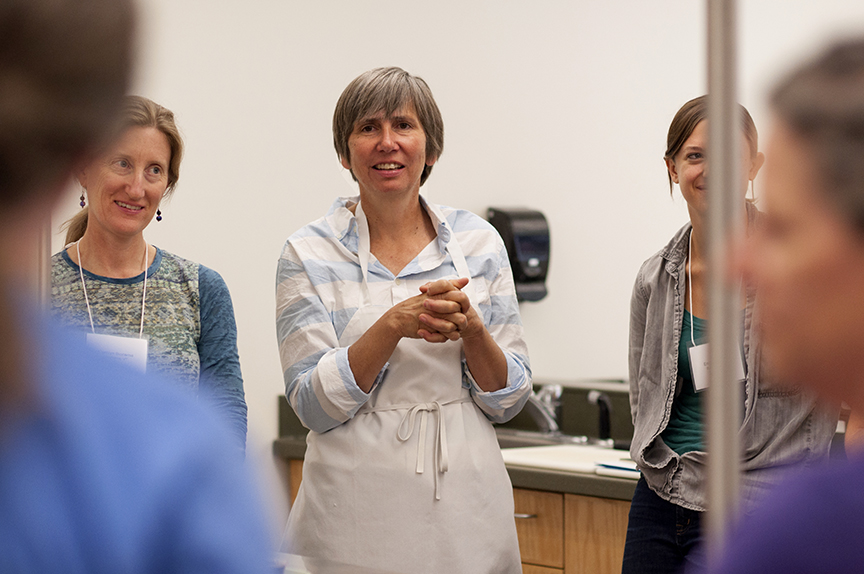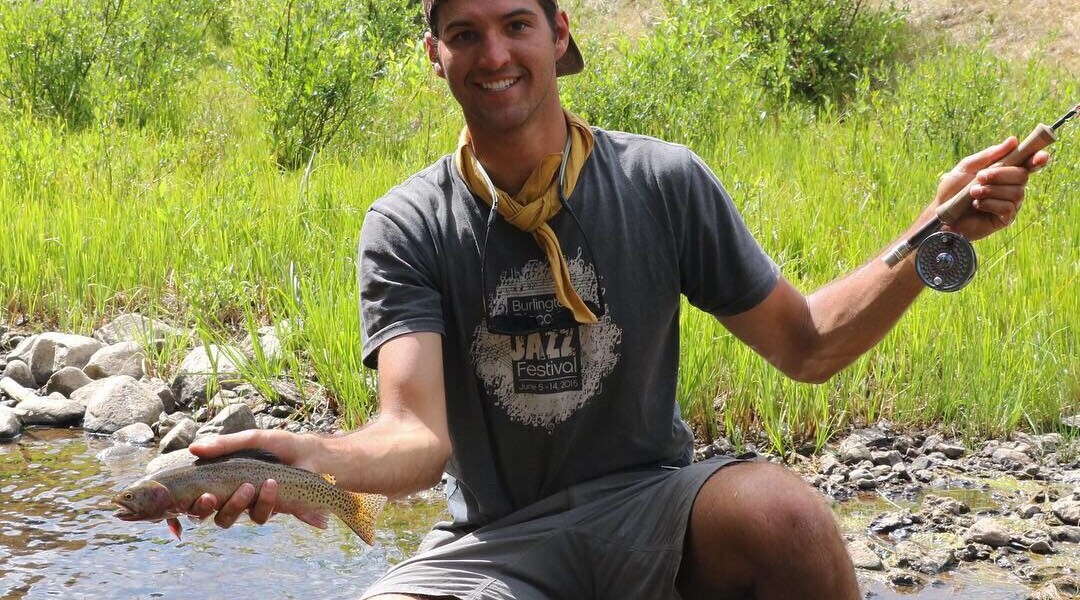Alumnus Warren Dibble ’89 worked his way up through the ranks at Harpoon Brewery after graduating from UVM with a degree in political science. He started as a bottler and truck driver before moving into sales and distribution management. After completing coursework in finance and accounting at Boston University, he now serves as Harpoon’s vice president and CFO.
We talked to Warren about on changes in the beer industry, workplace culture, and how to thrive in today’s competitive marketplace.
What are some of the biggest changes you’ve seen in the beer industry over the past three decades?
In the late 1980s, good beer available to beer consumers was very limited with offerings dominated by many similar domestic golden lagers. Today, America is the best place in the world to be a beer drinker. The quality and variety of beers offered is quite remarkable and still improving. It is truly remarkable what has happened.
Harpoon started in 1986, and you’ve been with the company from almost the beginning. How has the company managed to grow but also maintain its microbrewery spirit since the 1980s?
We all work very hard. However, the key to keeping the entrepreneurial spirit is maintaining a culture of fun and enthusiasm. In this environment, we also have a couple fundamental tenets, #ThinkLikeaCustomer, #WorkLikeanOwner. Together, these concepts empower all our employees and keep our spirit alive.
Harpoon decided to become an employee owned company in 2014. Are more breweries taking this cooperative approach?
Becoming an ESOP (employee stock ownership plan) in 2014 was a natural progression for Harpoon’s culture. It has been great to see other breweries become ESOPs—before and after us. Recently a brewery converted to ESOP right in Burlington, VT. I hope to see many more breweries become employee owned in the future.
What has been the result of being an employee owned company?
Employee ownership at Harpoon has heightened employees’ sense of purpose. We have a new ideas program, which has fostered hundreds of suggestions for small and large improvements at every level of the company. Many of the employee ideas have been vetted and implemented leading to improvements in quality, productivity, safety, and profitability. The process has been very empowering and engaged our employees even more than they had been.
There’s been talk over the past few years about a craft beer bubble. What do you think it takes to survive in this competitive business?
Brewers need to continue to innovate and make great beer that is relevant to the marketplace. Brewers cannot be all things to all people— they need to specialize in making what products they do best and sell them in appropriate places: regionally, locally, and at their own breweries.
You were a guest speaker in the UVM Business of Craft Beer program. What advice did you share?
My biggest piece of advice is to focus on what you do best to create and execute a business plan, which is balanced across the different departments (R&D, production, sales, marketing, administration) of your brewery. It is important to grow your business in a sustainable fashion.
Can you describe what your job entails at Harpoon?
My role encompasses traditional financial management as well as oversight of HR and IT. However, to manage the finances of a brewery effectively, it is important to stay involved with sales, operations, marketing and new business development. We have many sub-businesses under our two brewery roofs in Windsor, Vermont, and Boston, including on-premise tasting rooms, a restaurant/beer garden, and beer hall. I try to stay very involved in all these areas since it eventually all comes back to the finance.
What do you enjoy most about the beer industry?
The people! The brewing business attracts great people who share a passion for beer. At Harpoon and other breweries, there is a comradery amongst the employees. I still feel very fortunate to work at a place where we bring grain and hops in on one side of the building, bottles and cans on another, and then ferment, package and ship all under one roof. At the end of the day, we can—and do—gather in our tap room together to enjoy the fruits of our work. We are not alone.




